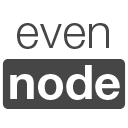Top Hasura Alternatives for Your Backend Needs
Hasura is an impressive Backend as a Service (BaaS) and Platform as a Service (PaaS) that simplifies building production-ready backends with its GraphQL and REST APIs, built on CoreOS, Docker, and Kubernetes. It's designed for rapid development, similar to Parse or Firebase, offering tools for data and auth APIs without infrastructure dependencies. However, specific project requirements, budget constraints, or a desire for different features might lead developers to seek a compelling Hasura alternative. This article explores some of the best platforms that offer similar functionalities or unique advantages for your application's backend.
Top Hasura Alternatives
Whether you're looking for a fully managed service, an open-source solution, or a platform with specific integrations, this list provides a range of excellent options to consider for your next project. Each alternative brings its own strengths to the table, making it a suitable choice depending on your development philosophy and application demands.

Heroku
Heroku is a widely popular platform as a service (PaaS) that allows developers to build, run, and operate applications entirely in the cloud. As a robust Hasura alternative, Heroku offers a freemium model and supports various platforms including Mac, Windows, Linux, and Web. Its key features include custom DNS, DNS management, automated deployment, and command-line support, making it an excellent choice for general application hosting and scaling without deep infrastructure management.

Firebase
Firebase, developed by Google, is a comprehensive mobile platform that provides tools and infrastructure to build better apps and grow successful businesses. It's a strong Hasura alternative, offering a freemium model and primarily focused on Web development. Firebase boasts features like Backend as a Service, Database Publishing, Cloud Messaging, NoSQL database, Real-time traffic, and a REST API, making it ideal for real-time applications and rapid mobile development.

Fast.io
Fast.io is a Software as a Service (SaaS) platform designed to simplify the hosting and tracking of static files on major cloud platforms with a CDN. It's a compelling Hasura alternative for projects primarily focused on static content delivery, offering a freemium model. Its main features include Cloud Storage, CDN, and Web hosting, automating much of the tedious work involved in managing static assets.

Graphcool
Graphcool offers a production-ready GraphQL backend that can be set up in minutes, allowing developers to implement business logic with any language. As a notable Hasura alternative, it operates on a freemium model and is Web-based. Key features include a robust Database, GraphQL support, and Software as a Service delivery, providing a flexible and powerful backend for modern applications that heavily rely on GraphQL APIs.

subZero
subZero transforms your PostgreSQL database directly into a GraphQL & RESTful API, with structural constraints and permissions determining the API endpoints. This makes it a powerful commercial, self-hosted, and Web-based Hasura alternative. Its main features are Backend functionalities, Developer Tools, and Web Development support, providing a direct and efficient way to expose your PostgreSQL data as APIs.

MeshyDB
MeshyDB offers all the functionality native to MongoDB but in the form of RESTful API calls, allowing quick connection to your app. As a free Software as a Service (SaaS) Hasura alternative, available on Web, Android, and iPhone, it features MongoDB compatibility, NoSQL database, OpenID Connect, Permission system, REST API, User Roles, and API access, catering to developers needing a flexible NoSQL backend with robust API capabilities.

EvenNode
EvenNode is a flexible Node.js and Python web hosting solution in the cloud, trusted by thousands of developers. As a commercial Hasura alternative, it supports Mac, Windows, Linux, Web, Android, iPhone, Chrome OS, Android Tablet, and Windows Phone. Its key features include Node.js hosting, MongoDB, Python support, and general Web hosting, making it suitable for projects built with these popular languages and requiring database integration.

Kuzzle
Kuzzle is a high-performance open-source, on-premise, and cloud-agnostic backend for IoT and modern apps, featuring CRUD, real-time notifications, and authentication. As a free and open-source Hasura alternative, available on Mac and Linux, it provides features like Geofencing, Database, Real-time capabilities, Real-time notifications, Scalability, Support for MQTT, Web Push Notifications, and general Backend services, perfect for real-time and IoT-focused applications.

Supabase
Supabase positions itself as the open-source Firebase alternative, adding real-time and RESTful APIs to Postgres without a single line of code. As a free and open-source Hasura alternative primarily for the Web, it offers API access, Database management, Real-time traffic, REST API, and Web-Database integration, making it an excellent choice for developers looking for a powerful, open-source backend built around PostgreSQL.

Qovery
Qovery is the first Container as a Service (CaaS) platform that enables any developer to deploy an application in just a few seconds. As a commercial Software as a Service (SaaS) Hasura alternative, supporting Mac, Windows, Linux, and Web, Qovery focuses on ease of deployment for containerized applications, streamlining the DevOps process for developers who prefer a CaaS model.
Choosing the right backend solution is crucial for any project's success. While Hasura offers a fantastic all-in-one platform for rapid API development, these alternatives provide diverse options to cater to specific needs, whether it's an open-source preference, specialized database requirements, or a different deployment model. Explore these options to find the best fit for your application's unique architecture and development workflow.